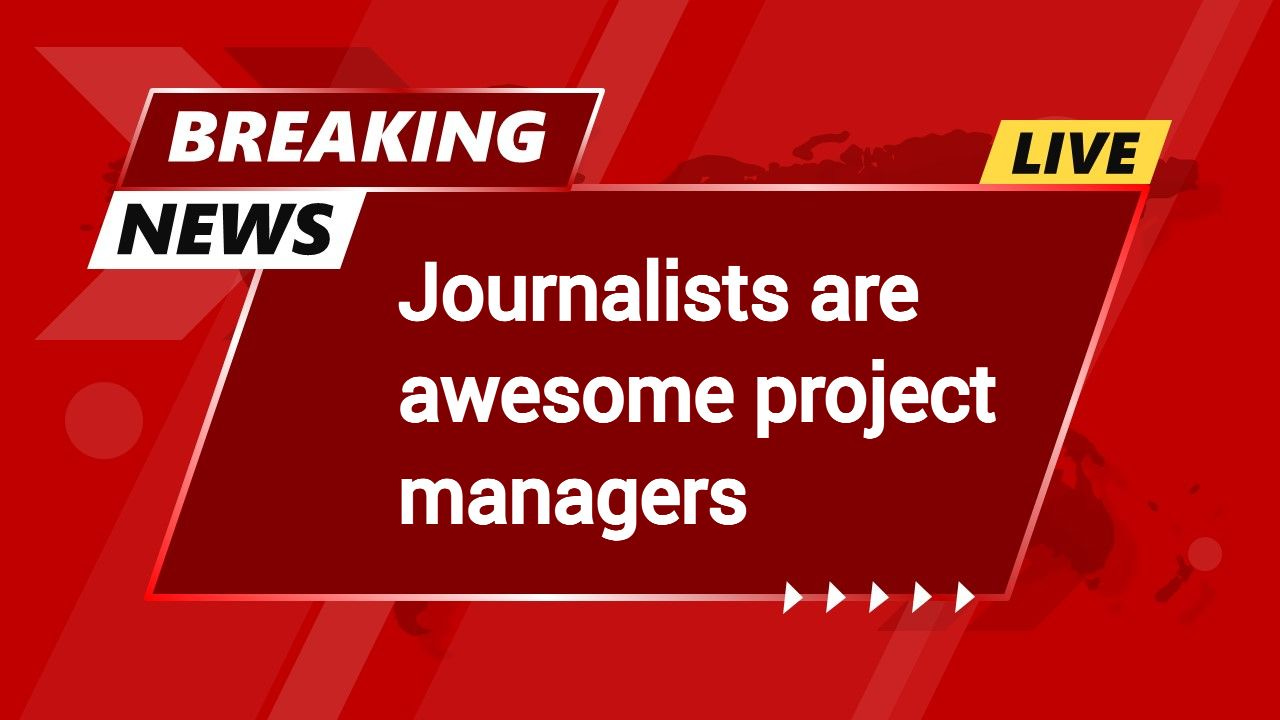Journalists are awesome project managers, and I am going to tell you why
What if I told you that having a background in journalism may make you a better project manager? Keep reading for some basic journalism concepts that will turn your written comms into little triumphs!
I took some journalism classes in college and worked as a journalist at the beginning of my career, back when the internet was young, online newspapers were even younger, Twitter was in diapers, and clickbait had not learned how to walk yet. As a baby digital journalist, I learned to combine traditional news-writing guidelines (the 5 Ws stuff and all) with the peculiarities of that emergent digital medium where we were (and are) constantly at risk of losing our reader’s attention. And you know what? All those teachings apply to every work email we write, and god knows we write a shit ton of them!
The title needs to be specific and include the right keywords
When scanning the news, the title makes the reader decide if they click and stay or keep scrolling and forget about you forever. We should expect that folks at work are more professional than that, but we should also assume that our email will end up in a busy person's inbox among dozens of other emails.
Make the title informative and relevant! Be clear and specific, use the active voice and present tense, mind your keywords, and don’t write a novel. I mean, be concise. Think about what you should write so your recipient will open the mail with interest and enthusiasm. Don’t get too carried away, though. It is probably not the best idea to write a title like: “We had a risk management session. You’ll never believe what happened next.”
The first paragraph summarizes the main point of your text
The first paragraph is what journalists call “lead.” The lead should grab the reader's attention and make them want to read more. It should also summarize the main point of the story. In emails, I like first paragraphs that tell the reader what they should expect throughout the text. The first paragraph should yell: this is why I am writing this email, this is what I need, and this is what will happen next.
Chances are that attention decreases dramatically after that first paragraph, so make sure it is super relevant. Remember, when in doubt, always be like íñigo Montoya.
Clarity and conciseness are your friends
You wrote a specific title and a clear first paragraph. Congrats! Don’t stop there! Your entire text needs to be clear and succinct. Use simple language and avoid jargon or overly technical terms.
Presentation is almost as important as content
Well, I may have exaggerated a bit there, but if your presentation is shit, your content won’t come through. Imagine you open an email, and the first thing you see is a fifty-line paragraph with no subtitles, no bolded text, no bullet points, just letters, words, and lines after lines after lines. I don’t know, folks, but when I receive an email like that, my first instinct is to ignore it and go to the next one. If I actually read it, I unconsciously become uncomfortable and grumpy, and I often need to re-read it to understand it fully. A waste of time.
Now, imagine the email is structured in short paragraphs and bulleted lists. One idea per paragraph. Complex ideas broken down into digestible chunks. Imagine the main concepts are bolded and subheadings group wider subject areas. You will be able to read and process the information way better, way faster.
The content may be the same, but the first email becomes irrelevant, while the second email is memorable.
Never assume folks will read the entire thing
If you are reading this, you are one of the mere 10% that generally get to the end of the text. Yeah, life is hard. Most of your recipients won’t read more than half the mail. The ones that do won’t be paying as much attention as they did at the beginning of it. This means we must ensure we write the most essential items at the beginning. This is not a fairy tale or novel with a climax at the end. We are writing emails, not Don Quixote. We should consider ourselves lucky if folks go beyond the third paragraph. If something is important, lead with it.
And there you have it! By following these simple journalism principles, you can turn your work emails into little things of beauty. Remember: your keys to success are clarity, conciseness, and a reader-centric approach. Ready? Steady? Go write those awesome emails!





